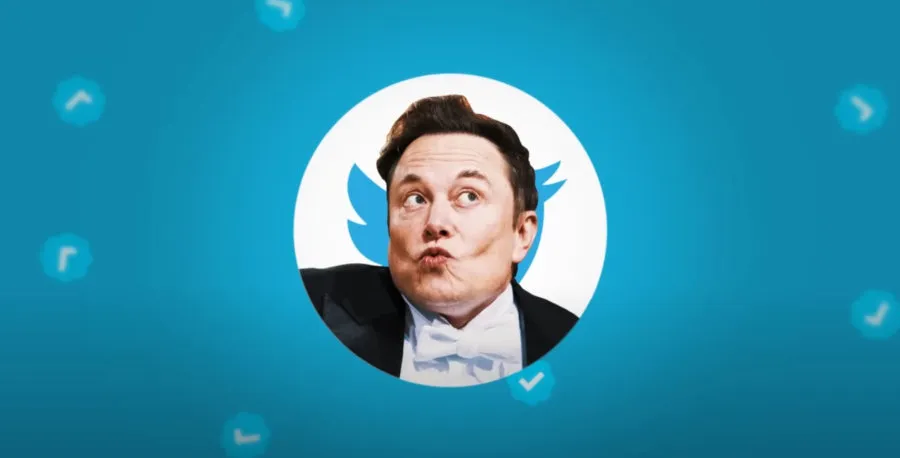All the drama that happened on and around Twitter since Elon Musk took over has made one thing perfectly clear: we should all be taxed for internet access. Now, before you start fuming, hear me out and I'll explain why.

source: YouTube
The internet has become an integral part of our lifes and has done so in record time. I work at my country's largest Internet Service Provider (ISP) and talk to many customers each day, and I'll tell you that people panic whenever there's something wrong with their internet connection. We do everything on the internet, not just shout at each other on social media platforms, but do our banking, shopping and friendly communications there as well. Without internet, life halts in many essential ways. I regularly speak to people of my age and older, and sometimes we then remember the times before the internet and wonder where those times have gone. And how fast those times have gone. But I guess you know all that; it's clear that we've become dependent on the electronic highway and that it's just as important to us as electricity, roads and running water.
The problem with this is that internet is a business. A capitalist for-profit business. It didn't start that way though; the electronic highway started out as any other road, namely as a government-funded public service. From the late 1960s until the late 1980s the internet's predecessor, ARPANET, was a government program initially developed for the Department of Defense and the National Science Foundation (NSF). ARPANET was decommissioned in 1990, four years after the NSFNET project started; NSFNET then became the internet backbone for government agencies and universities.
It was in the 1990s when the commercialization of the internet began; after spending billions of our tax dollars building the decentralized infrastructure of packet-switching router hardware and software, it was decided that it should all be handed over to the markets. The Dot-com bubble wouldn't have happened if the internet had remained a public service. To illustrate, here's a snippet from a 1982 handbook on computing at MIT's AI Lab regarding network etiquette:
Sending electronic mail over the ARPANet for commercial profit or political purposes is both anti-social and illegal. By sending such messages, you can offend many people, and it is possible to get MIT in serious trouble with the Government agencies which manage the ARPANet.
source: Wikipedia
There you have it: sending messages for commercial or political purposes is both anti-social and illegal. Now, we can all agree that this is a bit extreme, to put it mildly, but it does illustrate how far apart the mindsets are between a public non-profit service and a for-profit business. The idea that "the market knows best" has been debunked each and every time a public service has been handed over to private for-profit businesses; I'll just mention the electricity-grids in California and Texas, responsible for death by fire and death by cold respectively, and the shit-show that is the privatization of the railroads in England. When Marjory Taylor Greene blamed Jewish space-lasers for the California fires she was, as usual, full of shit: it's long been determined that faulty power lines from PG&E are responsible for starting many of those fires.
California was facing its hottest summer then on record when PG&E power lines sparked the Camp Fire. The fire found plenty of fuel in the hot, dry season to level the town of Paradise and led to at least 85 deaths. PG&E ultimately pled guilty to 84 counts of involuntary manslaughter and one felony.
source: Vox
State officials have determined that 246 people died for reasons related to the freeze and power grid failure last February that left many Texans without heat and electricity for days, though outside experts have said the victim count is probably much higher.
source: Austin American-Statesman
Just wait for the pleasure of having to pay tolls on every road when those are privatized. I really don't care if you think that markets know best, they just don't because there's no rationale behind them other than exploitation and profits. At the very least we should all be able to agree that markets, competition and profits have no place in the infrastructure underneath our very daily lifes. Really, if you want the internet to become that bastion of freedom it's always supposed to be, make it part of the public domain where we all have a democratic say on how it's governed.
Sure, blockchain-based platforms like Hive are one small step, but it is also run on the backbone of a for-profit business, it is still behind a pay-wall put up by the money-grubbing ISP's. And remember, they've been given the infrastructure you paid for. Like I said in the introduction, the end result of the for-profit approach is that Twitter is now owned by one man, one man who's not nearly as smart, freedom-loving or the savior of humanity so many of his fans make him out to be. You all know how this works: anger and hate generate clicks, generate user-date that can be sold, generate profits. There's no big mystery here, just capitalism dot-com.
How Capitalism Destroyed The Internet
Thanks so much for visiting my blog and reading my posts dear reader, I appreciate that a lot :-) If you like my content, please consider leaving a comment, upvote or resteem. I'll be back here tomorrow and sincerely hope you'll join me. Until then, stay safe, stay healthy!

Recent articles you might be interested in:
| Latest article >>>>>>>>>>> | Combat Competition |
|---|---|
| Believe In Magic | Big Losers |
| Jobs, Jobs, Jobs! | Eternal Emergency |
| Killing Democracy | Elon's Twitter Nonsense |

Thanks for stopping by and reading. If you really liked this content, if you disagree (or if you do agree), please leave a comment. Of course, upvotes, follows, resteems are all greatly appreciated, but nothing brings me and you more growth than sharing our ideas.